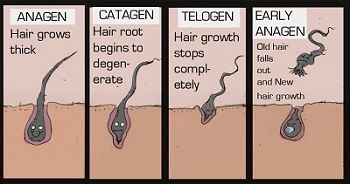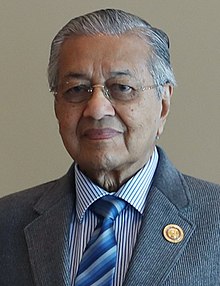In my opinion, excessive stress can almost never cause permanent hair loss in humans. At worse, it causes temporary telogen effluvium hair shedding.

Chronic Stress and Hair Loss
On March 31, 2021, researchers from Harvard University released findings (in mice) that chronic stress causes permanent hair loss. These findings were published in numerous newspapers around the world. The lead researcher was the respected Dr. Ya-Chieh Hsu, and the paper was published in Nature on March 4, 2021.
It was titled: “Corticosterone inhibits Gas6 to govern hair follicle stem-cell quiescence.” Chronic stress seems to increase levels of the corticosterone stress hormone in mice. This in turn prolongs hair follicle stem cell (HFSC) quiescence, resulting in hair follicles remaining in an extended resting phase.
The scientists believe that restoring Gas6 gene expression overcomes the stress-induced inhibition of HFSC activation and hair growth. Another summary from Harvard Stem Cell Institute (HSCI).
“Stress essentially just elevates this preexisting ‘adrenal gland–hair follicle axis,’ making it even more difficult for hair follicle stem cells to enter the growth phase to regenerate new hair follicles.” — Dr. Hsu.

Since that day, readers have regularly posted or e-mailed me links to newly published versions of the story. This has annoyed me, since I do not believe these findings hold much merit in humans. However, to avoid further e-mails, I am now writing my counterarguments.
Besides the fact that the research was done in mice, there are some obvious issues that the researchers have surprisingly failed to address.
Mice are not Humans
- Why do young people almost never go bald? In my whole life, I have seen just a handful of people younger than 14 being bald. And all of them seemed to have the rare condition of alopecia areata (or alopecia totalis and alopecia universalis). A few dozen people around the world also go prematurely bald due to progeria (Hutchinson-Gilford). I am of course not counting the few pre-teens who shave their head as a fashion statement.
- Major baldness is rare even in those who are younger than 20 years in age. And also not too common in those who are below 25. It is surely not believable that young people do not suffer from major stressful events!? If anything, stress is perhaps worst in those who are in high school and college. Permanent hair loss is almost always caused by male hormones (hence the term androgenetic alopecia) and NOT stress. More specifically, male pattern hair loss is usually due to a person’s genetic sensitivity to the effects of dihydrotestosterone (DHT). The latter in turn is converted from testosterone via the 5-alpha-reductase enzyme. Make sure to read my post on destroying the androgen receptor.
- Why do “pure” Native Americans never go bald? Are the Harvard Researchers implying that Native Americans never have chronic stress? If not, they should have at least posted a caveat that certain groups are genetically protected from stress induced permanent hair loss.
- The findings do not address why women are less likely to have significant hair loss in comparison to men. Especially in their younger years. Most news sources seem to suggest than women in fact have more stress than men. So if anything, they should have higher rates of baldness than men.
- Why does stress not seem to impact body hair growth? Or even nail growth. Most men get an increasing amount of body hair as they get older. I have never heard someone say that they permanently lost their body hair after prolonged stress. Nails are made from keratin, just like scalp hair. Yet stress does not seem to cause nail stem cells to go into a permanent “resting phase”. Even people over the age of 100 have to keep cutting their fingernails and toenails unfortunately.

95-year old Mahathir Mohamad has not lost any hair even with a lifetime of stress. Why do many people who go through tremendous stress in their lives still never go bald? Among the most famous examples of this are: 93-year old now deceased ex-US president Ronald Reagan. And 95-year old still living ex-Malaysian prime minister Dr. Mahathir Mohamad. These two men went through numerous periods of chronic stress during their long lives.
Stress and Hair Greying
The funny thing is that the same Harvard researcher (Dr. Ya-Chieh Hsu) and her team published a paper in January 2020 titled: “How stress causes gray hair.” At the time, I also ignored the work due to skepticism. Especially in regards to how findings in mice do not necessarily translate to humans. I did not even expand much on the findings in my regularly updated grey hair cure post.
Some of the same arguments I made earlier apply to these conclusions. Why do you almost never see children with grey hair? Young people often suffer from chronic stress. Yet I would guess that less than one percent of those below age 15 have prematurely graying hair.
I do think that the chances of getting more rapid development of grey hair after prolonged stress is at least somewhat possible in many humans. However, I do not believe that stress can cause permanent hair loss in almost any humans.

